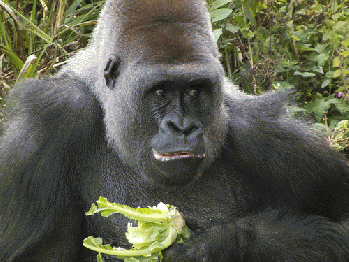An article published this week in the Proceedings of the National Academy of Sciences (PNAS) claims that it would be a disaster for public health if the population of the United States suddenly went vegan. Yet the authors are not experts on human nutrition or public health. Instead, they are experts on how to feed chickens and cattle. Their conclusions were not based on any studies of the health of vegan human beings. The study's authors even freely admit that plant-based diets have several important advantages for human beings:
- Shifting to a plant-based diet would increase the amount of food available for human beings.
- A plant-based diet requires people to eat a greater volume of food, to maintain the same weight. [As I have explained in two of my books (www.gorillaprotein.com www.thindiabetes.com), this is why a vegan diet is the key to solving our epidemics of obesity and type 2 diabetes.]
- The 2015 Dietary Guidelines Advisory Committee concluded that plant-based diets would improve health and improve long-term sustainability of the US food supply.
Nevertheless, the authors of the PNAS article claimed that a plant-based diet would be deficient in several important nutrients. Yet they did not back up this claim with any studies that showed that vegans are really likely to have health problems as a result of nutrient deficiencies. The authors wrote, "However, without animal-derived foods, domestic supplies of Ca [calcium]; arachidonic, eicosapentaenoic, and docosahexaenoic fatty acids; and vitamins A and B12 were insufficient to meet the requirements of the US population." That claim is absolutely ridiculous, for the following reasons:
- Although you do need to get some calcium from your diet, it is practically impossible to find actual cases of people who did not get enough calcium from their food. Problems with calcium balance in the body usually result from lack of vitamin D or from long-term consumption of high-protein, high-calcium diets.
- The article also warns about dietary deficiency of vitamin D. Yet vitamin D is not a true vitamin. It is a hormone that your body can make for itself, for free, if you expose your skin to sunshine. You don't need to get "the sunshine vitamin" from your food.
- The Food and Nutrition Board of the National Academy of Sciences does not consider arachidonic acid, eicosapentaenoic acid, or docosahexaenoic acid to be essential in human nutrition. In other words, human beings do not need to get them from their food. The only essential fatty acids are an omega-6 fatty acid called linoleic acid and an omega-3 fatty acid called alpha-linolenic acid. Linoleic acid is plentiful in grains, nuts, and seeds. Alpha-linoleic acid comes from the chloroplasts in green plants and is plentiful in fresh vegetables. The requirement for both of these essential fatty acids is so small that it was not even discovered until hospitalized patients were being fed nothing but fat-free intravenous solutions for a long time.
- Human beings can easily meet their requirements for vitamin A by eating beta-carotene, which is plentiful in dark green, orange, or yellow vegetables.
- Vitamin B12 is the only true vitamin that is likely to be deficient in plant-based diets. Vitamin B12 is made by bacteria, not by animals, and can be obtained from a cheap supplement.
PNAS is a prestigious journal. Yet like other prestigious journals, it occasionally publishes bad articles. Likewise, I imagine that PNAS probably also rejects some good articles for bad reasons. I have worked for peer-reviewed journals, and I have also submitted articles to other peer-reviewed journals, so I have seen the problem from both sides, as I explain in this blog post. The mistake that the editors of PNAS made in this case was to fail to have this article reviewed by someone who is a genuine expert in human nutrition and nutritional epidemiology. As a result, they ended up spreading livestock industry propaganda.






